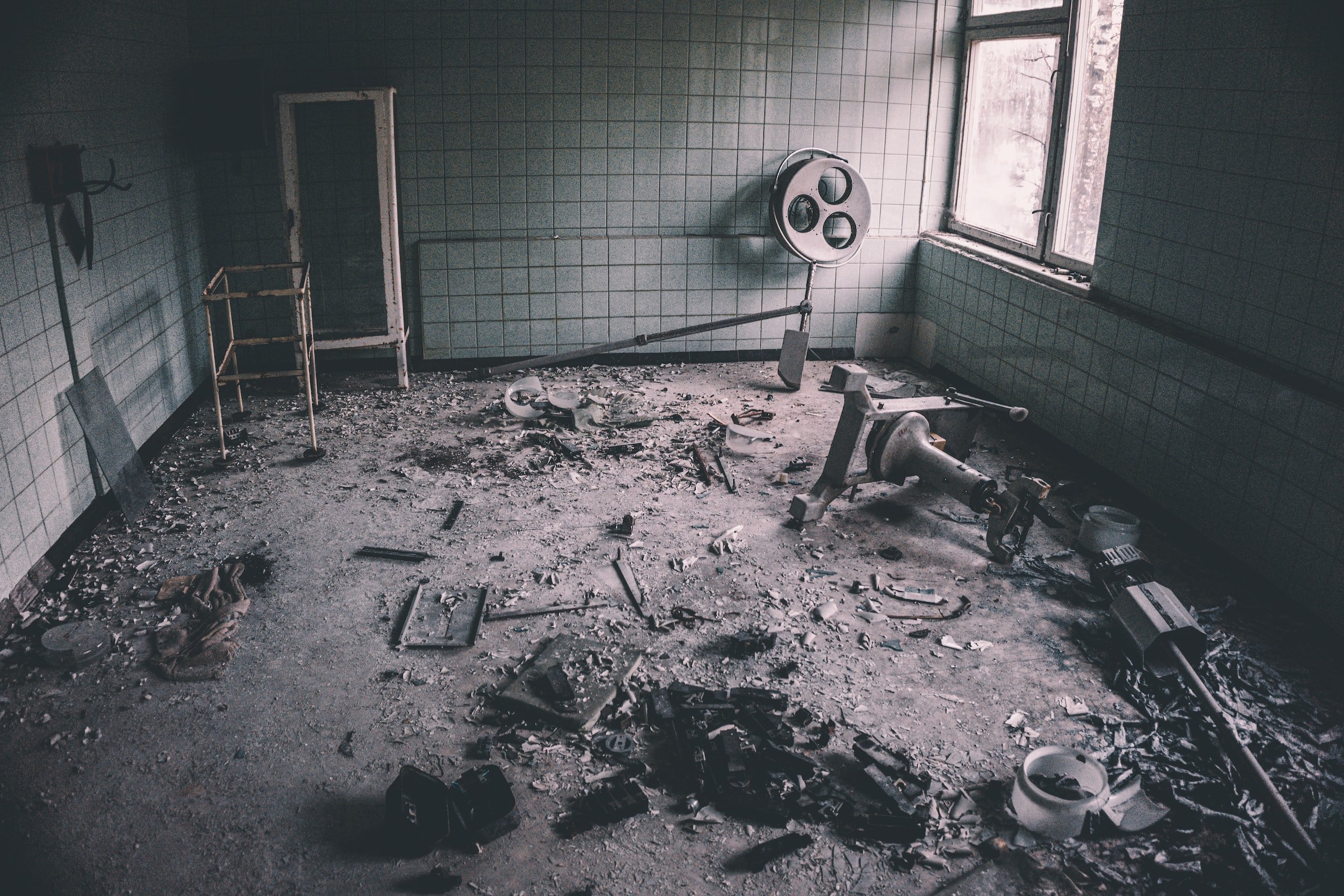Russian War Crimes: Attacks on Civilian Hospitals
As the Russia-Ukraine conflict progresses, there is rising evidence connecting Russian forces to systemic war crimes against Ukrainian civilians and civilian infrastructure. Russia continues its brutality in Ukraine with attacks targeting civilian hospitals. These deliberate attacks are a war crime of especially cruel nature because of its immense capacity to amplify the effects and suffering of war on civilians. As such, these particularly devastating war crimes must be the first to see consequences from the international community.
Russia began targeting civilian hospitals, health care centers, and medical workers as soon as the first day of its invasion into Ukraine. Russia continues to withhold Ukrainian access to clean water, medicine, and vaccines, all of which are critical to the safe health of civilians. Reports also show attacks on several first responders, four maternity hospitals, 41 hospitals and clinics, a blood bank, three cancer centers, eight pediatric hospitals, seven ambulances, and four psychiatric centers. The attack on Ukraine’s Mariupol maternity hospital on March 9, 2022 led to global criticism. While Russia attempted to cover up their intentions by claiming the hospital was a military base, the images shown as evidence were proven to be falsified. Russia’s attack led to the death of a pregnant woman after she was unable to receive a cesarean section that could have saved both her and her baby.
The Russian military’s attacks on Ukraine’s civilian health infrastructure greatly limit the amount of access the Ukrainian population has to vital health resources, including medication, hospitals, and other health care facilities, and COVID-19 testing and vaccinations. With only 35.7 percent of the population being able to receive vaccinations against COVID-19, a number considerably lower than the 44.9 percent of the population who had access to the vaccinations pre-war, the disease and its variants are surging, and the health outcomes are continuing to worsen without efficient access to medical care for those who contract the disease. These attacks have limited access to birth control and Plan B as well, and with gang rapes persisting in Ukraine, the lack of access to health care is resulting in infanticide, unwanted pregnancies, and unsafe abortions. With the disruption of health care, diseases, such as HIV, tuberculosis, HPV, polio, measles, pertussis, meningitis, pneumonia, shingles, and chickenpox, are also spreading and progressing rapidly. Additionally, individuals with diabetes are rationing their insulin, with consequences that include blindness, infection, and kidney failure.
Russia’s targeted attacks on Ukraine’s health care systems represent the brutal weaponization of health care, consciously intending to create more suffering. It aims to deprive civilians of medical care at a time when it is most necessary. Through international humanitarian law, the causes of civilian suffering are decreased during wartime. Safe access to medical care is so essential for this purpose that a ban was put in place in 1863 against targeting hospitals and health care systems during wartime. The violation of this ban by the Russian military is resulting in a critical need for medical care while concurrently denying Ukrainians of that care.
Even in the face of children being buried under hospital wreckage after the attack on Mariupol, Ukraine’s request for a declaration of a no-fly zone was denied by the United States and NATO. Airstrikes hitting civilian targets are often dismissed because of poor accuracy, but a no fly zone would make those air strikes far less likely. Ukraine President Volodymyr Zelenskyy expressed his dismay regarding the lack of international condemnation of Russia, writing “How much longer will the world be an accomplice ignoring terror?” Despite the capacity of attacks on health care to create immense amounts of wartime suffering, Russia has not been forced to take accountability. The World Health Organization has failed to monitor and report the attacks even as such consequential breaches of international human humanitarian law repeatedly take place.
This represents a grave need for a new international approach in monitoring and globally communicating war crimes in a way that still portrays the human component of suffering in order to hold perpetrators accountable. The United States is presently in support of the International Criminal Court and the UN Commission of Inquiry, as they launch a European joint investigative team, with additional help from the EU Council’s military assistance mission, to look further into the escalating evidence indicating systemic war crimes committed by the Russian military. Even with these efforts, the international community must push for especially harsh prosecution as the attacks on Ukraine’s health care system represent a deliberate magnification of human suffering.



